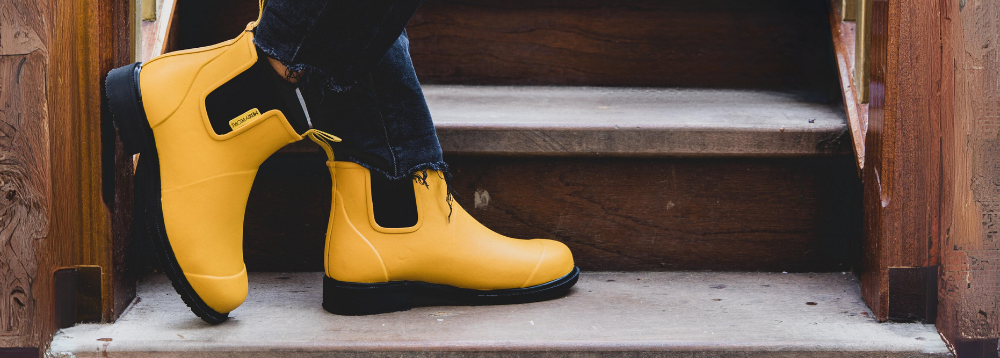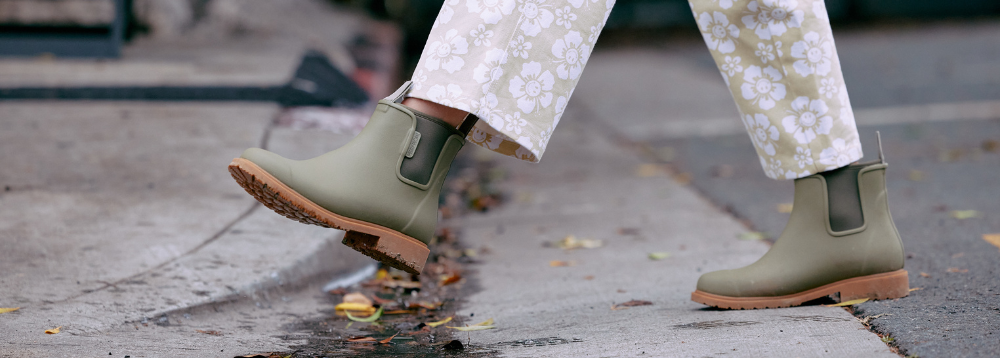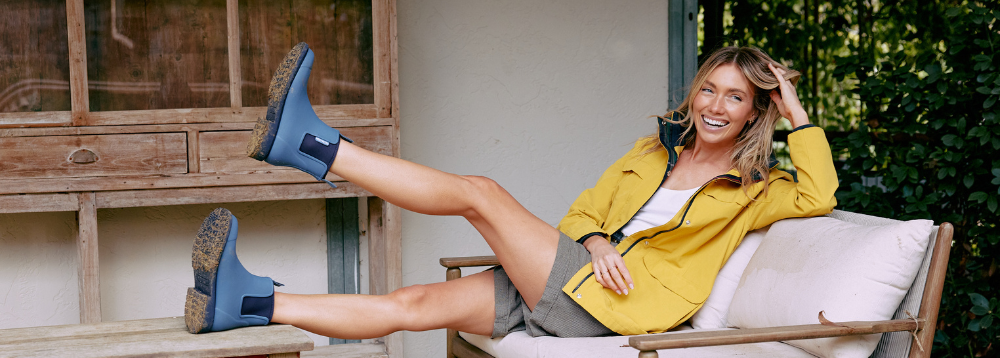The best restaurant work boots are ones that are designed to be non-slip on hard, wet surfaces, as well as comfortable for all-day wear. Non-slip boots for restaurants are most often made with rubber soles that have been designed with a strong traction grip on the soles to increase the friction between the shoe and the ground.
Many chefs and restaurant workers prefer to wear boots and clogs that share a lot of features with rain boots, which makes sense, considering that rain boots are waterproof and have textured tread on the soles to help prevent slips and falls. While Merry People’s boots and clogs are not rated for restaurant work, they do have many features that people who work in hospitality look for when choosing boots for restaurant work.

Choosing The Best Boots For Restaurant Work: Features To Look For
Choosing the best work boots for working hospitality at a restaurant is a bit like choosing the best boots for cold rainy weather – you want a well-made, functional shoe with highly durable materials to keep you protected.
Here are some features to look out for when choosing the best boots for your restaurant work!
Rubber Materials
Wearing rubber boots in a professional setting serves a few key practical and safety purposes. Many of the preferred restaurant work boots and clogs are made from rubber, because rubber is a heavy duty yet flexible material, similar to Merry People’s ankle-height rain boots.
Soles With Traction
The most important feature a restaurant work boot needs to have is well-designed traction. Professional kitchens are notoriously greasy, wet, and are likely to have scraps of food on the floor. The grooves and textured tread on the soles of non-slip boots helps prevent slipping on slick surfaces.
Professional kitchen floors can be slick with oil and water, so proper traction is essential for minimizing risks at work. When choosing a pair of restaurant work boots, it’s important to remember that not all traction on the soles is the same. Some tread patterns are better for oily surfaces than others, but any slick floor should be walked on cautiously.

All our rain boots and clogs have an Enhanced Traction sole. This is a durable outsole designed with an enhanced tread pattern to maximise traction and stability.
The traction, alongside the rubber material itself, provides friction between the shoe and the ground. It’s important to note that no matter what kind of boot or shoe is worn, slick surfaces where water and oil are present should always be treated with caution.
Our boots and clogs are slip rated in most conditions, for example, when water is present – making you ready for your merry adventures! However, the tread is not slip rated when oil is present, for example, in a commercial kitchen. For this reason we do not recommend our boots and clogs for any work that occurs where oil on the floor could be present.
Protection From Spills and Sharp Objects
Injuries from slipping aren’t the only safety concerns in restaurants. Working in professional kitchens exposes feet to hot water and oil spills – which can cause third-degree burns if proper protection is not worn.
Additionally, sharp kitchen instruments run the risk of falling in tight, busy spaces. Wearing protection on your feet is important in these environments. Rubber is highly resistant to spills and is much less likely to stain or warp compared to leather or cloth shoes.
All Day Comfort
Working in a restaurant often requires standing up all day, which can put a lot of strain on the feet and lower back. Arch support helps distribute the weight of the foot more evenly, while supporting its natural curve. Without proper support, long-term injuries are a risk factor with working on the feet.
A good boot for standing all day will have footbeds with arch support, with the option to remove the innersole for a customized insert if needed, like any of the boots in our range.












